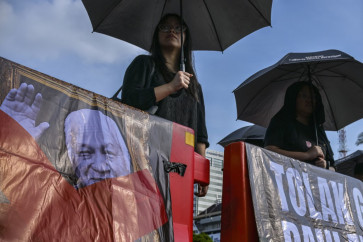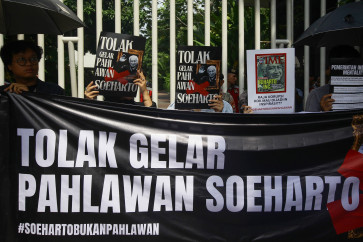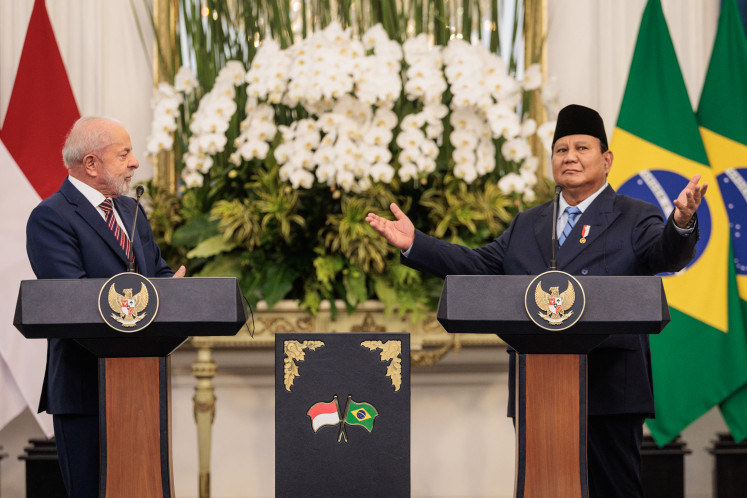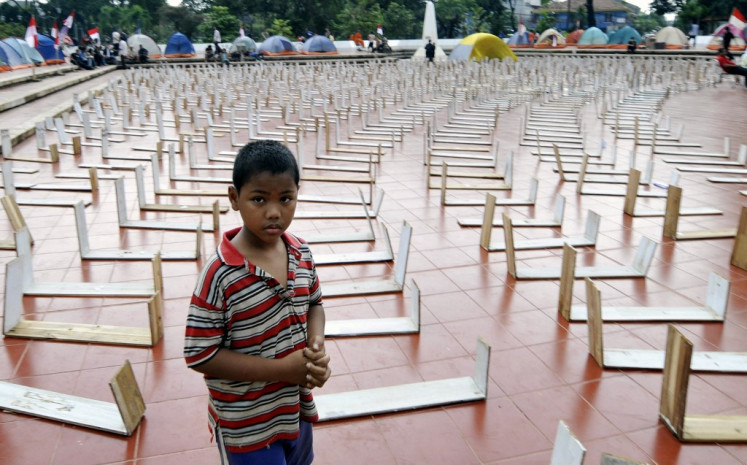Popular Reads
Top Results
Can't find what you're looking for?
View all search resultsPopular Reads
Top Results
Can't find what you're looking for?
View all search resultsUniversity integration under ASEAN Community
Since its inception in 1967, ASEAN has been identified as the most diverse part of the world in various aspects
Change text size
Gift Premium Articles
to Anyone
S
ince its inception in 1967, ASEAN has been identified as the most diverse part of the world in various aspects. In terms of religion, for example, Indonesia is a predominantly Muslim country, while Thailand has a Buddhist majority and the Philippines Roman Catholic.
In terms of governmental systems, Myanmar is still under military rule; Malaysia is ruled by a constitutional monarchy and Vietnam a communist state.
In terms of territory and population, Brunei spans 5,700 square kilometers and is occupied by over 300,000 people, while Indonesia is about 2 million sq km with more than 250 million people. Other differences include languages, with Malay very different from Lao, Thai, Chinese and Tagalog.
Therefore, there is still potential for suspicion among the states.
In addition, there are persistent economic, social and cultural gaps between and among countries within ASEAN.
Inequality also exists internally in each ASEAN member, except Singapore and Brunei. In Indonesia for example, there is still a yawning gap of development between eastern and western parts of the country.
Under such circumstances, ASEAN will be a single community of nations by 2015. In the long run, the region will transform into a single political-security community, economic community and socio-cultural community.
To arrive at those three destinations in a single community of nations looks very ambitious. It looks unlikely that ASEAN will be able to emulate a regional community like the European Union anytime soon. ASEAN needs more time for consolidation prior to its transformation into an EU model.
However, it can be accelerated if ASEAN takes some lessons learned from the EU. One of them is its experiences in integrating its universities.
To integrate universities, ASEAN may adopt the Laureate model. EU integration has been greatly supported by its university integration. Within the Bologna Process, which was adopted in 1999, higher education systems in European countries are to be organized in such a way that: it is easy to move from one country to the other (within the European higher education area) ' for the purpose of further study or employment; and the European higher education area provides Europe with a broad, high-quality advanced knowledge base, and ensures the further development of Europe as a stable, peaceful and tolerant community benefiting from a cutting-edge European research area.
Such a process could be replicated within ASEAN to speed up the integration of universities to support the region's transformation into a single community by 2015, politically, economically and socio-culturally.
ASEAN may choose between the Laureate model and the existing ASEAN initiatives to integrate its universities.
The Laureate model, under the key leadership of President Bill Clinton as Laureate's Honorary Chancellor, by adopting the Bologna Process, has more than 75 campus-based and online universities offering undergraduate and graduate degree programs to over 850,000 students around the world.
Laureate's students are part of an international, academic community that spans 29 countries throughout the Americas, Europe, Africa, Asia and the Middle East.
As a community of universities in a single system, Laureate institutions offer hundreds of career-focused undergraduate, master's and doctoral degree programs in such fields as architecture, art, business, culinary arts, design, education, engineering, health sciences, hospitality management, information technology, law and medicine (www.laureate.net).
Every institution in Laureate's network operates as its own unique brand, guided by local leadership and actively involved in its community. Relationships among the institutions in the Laureate network are enriched with shared curricula, faculty, degree programs and student exchange opportunities.
The ASEAN University Network (AUN) model, established in November 1995, envisaged to 'hasten the solidarity and development of a regional identity through the promotion of human resource development so as to further strengthen the existing network of leading universities and institutions of higher learning in the region.'
This model offers various programs such as student and faculty exchange, scholarship, ASEAN studies, information networking and collaborative research.
The AUN Secretariat is located at Chulalongkorn University in Bangkok and liaises closely with the ASEAN Secretariat in coordinating and implementing regional cooperation activities on higher education.
The RIHED model as the Southeast Asian Ministers of Education Organization Centre specializing in regional higher education development, aims to foster efficiency, effectiveness, and harmonization of higher education in ASEAN through system research, empowerment, development of mechanisms to facilitate sharing and collaborations in higher education.
RIHED also provides various opportunities for universities to build capacity in the areas of university governance and management, for instance: education programs on University Governance and Management; University Research Management; Quality Assurance, Harmonization of Higher Education; etc.
Finally, under the new administration, hopefully, Indonesia can take a leading role in pushing for the establishment of regional integration of universities toward ASEAN Single Community of Nations by 2015.
_______________________
The writer is a professor at Jakarta State University.










